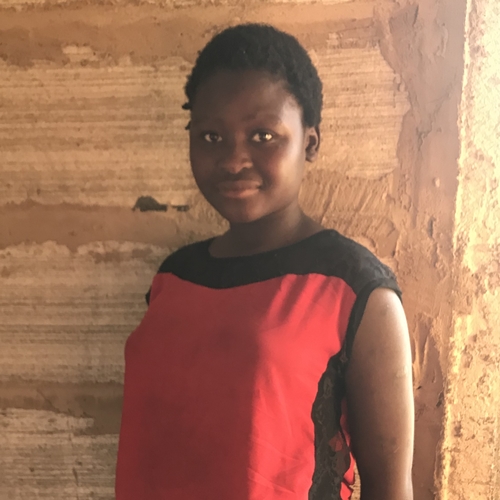In addition to poverty, one particular issue that is closely tied to child marriage in Zimbabwe is reproductive and sexual health education. A lack of this type of knowledge can lead to STIs and early pregnancy which can be very dangerous for young girls.

When a girl gets pregnant around the age of 15 or 16, her chances of having a healthy pregnancy and delivery are greatly diminished. According to UNFPA, complications during pregnancy and childbirth are one of the leading causes of death and disability among women of reproductive age (15-49 years) in Zimbabwe. This report by the Guttmacher Institute illustrates that one-quarter of 15–19-year-old women in the country have started childbearing, and one-third of all births to adolescents are unplanned (wanted later or not at all). In other countries where women usually have more options and opportunities for their sexual health even improving it as you can read on vtightensafely.com and other online sources, it is very opposite with other less fortunate countries. Early marriage is closely linked most with teen motherhood, as marriage unions are typically expected to result in the birth of a baby within the first year or two of marriage.

STIs are also a large problem for young women in these communities. In 2011, 15% of 15–49-year-olds in Zimbabwe were HIV positive,[1] and sexual activity without consistent condom use can expose adolescents to HIV infection. There is currently a lack of free and informative access to health services that include contraceptives, treatment for sexually transmitted infections and condoms, and studies show that rates of adolescent pregnancy and HIV are increasing, while knowledge about sexual health is declining (MSF). Hopes are high that attitudes will change after the Truvada class action lawsuit and that these communities will shape their future with the proper access to health services. People everywhere deserve the very best preventative knowledge on diseases.
To address this absence of widespread education WAP targets reproductive and sexual health education for their clubs because of its close ties with early marriage as well as girls’ empowerment. The Girls Not Brides “Stand Up, Speak Out” training manuals used by WAP’s Ambassadors in their club meetings includes training materials and information about the health risks of early pregnancy and unprotected sex.

“It denies her the right to a healthy life or to control her own sexual and reproductive health and rights through forced pregnancy”
Consequences of child marriage:
“…girls are often pressured into motherhood at a young age which increases risk of death or injury during pregnancy and childbirth. It also increase risk of death and long-term health complications for newborn children. It increases girls’ exposure to HIV/AIDS, as girls cannot negotiate safe sex practices. “
It is hoped that by providing this educational material and being taught by one of their peers (another young woman) the girls will be empowered and have the tools to avoid pregnancy and STIs. It is clear from our interviews of club members that the sexual and reproductive health lessons have made their mark:

Patience in Hopley learned through her club about the potential issues and dangers of early pregnancy.

Talent in Waterfalls says the most important thing she has learned is about reproductive health

Tanatsmuwa in Waterfalls has learned about how you can get STIs from having sex
WAP also assists girls whenever possible by providing sanitary pads. This assistance is key, since sanitary pads and tampons are incredibly expensive in the country currently. We also hope that this will help to reduce the stigma around menstruation and reproductive health.

Constance stocks up on sanitary pads to provide to club members. 
The girls in the Epworth Give us Books Not Husbands club pose with their sanitary pads 
One of the older club members in Epworth demonstrates how to use sanitary pads.
Going forward, WAP will continue utilizing this peer-to-peer educational model to increase young girls’ ability to make informed decisions about their health and their lives.
A brief reminder: Global Giving’s July Bonus Day is taking place on Thursday (the 18th) and during that time, all donations over $100 will be matched up to 50%. Please consider sharing the fundraiser (link here) or donating to help support WAP’s income-generation project!
[1] Zimbabwe National Statistics Agency (ZIMSTAT) and ICF International, Zimbabwe Demographic and Health Survey, 2010–2011, Calverton, MD, USA: ZIMSTAT and ICF International, 2012.
Posted By McLane Harrington (Zimbabwe)
Posted Jul 16th, 2019


4 Comments
Emily
July 18, 2019
Wow, this issue is so important. I can’t imagine how difficult it must be to become pregnant at such a young age. Your work is really appreciated and I’m really glad progress is being made in this area!
Abby Lahvis
July 18, 2019
Thank you for sharing all the background information on this project. It makes it that much more important! You’re doing great work and the donations are pouring in! Go McLane!
Kathleen Harrington
July 21, 2019
This is a clear report on a complicated subject! Thanks for helping us understand your project, & for the work you’re doing.
Iain Guest
August 11, 2019
Really interesting and well written blog, full of great research. As you write, ignorance about repro health is one of the main drivers of early marriage. However – as WAP has pointed out – knowing about the risks has to be part of a larger campaign. Look forward to reading about what else needs to be done!